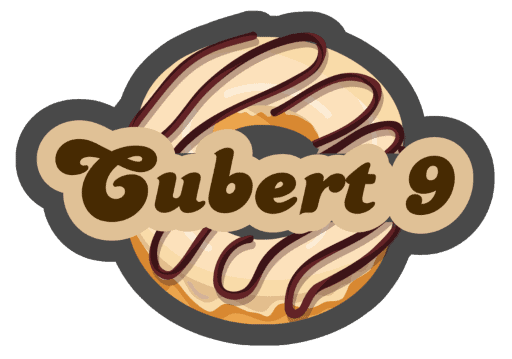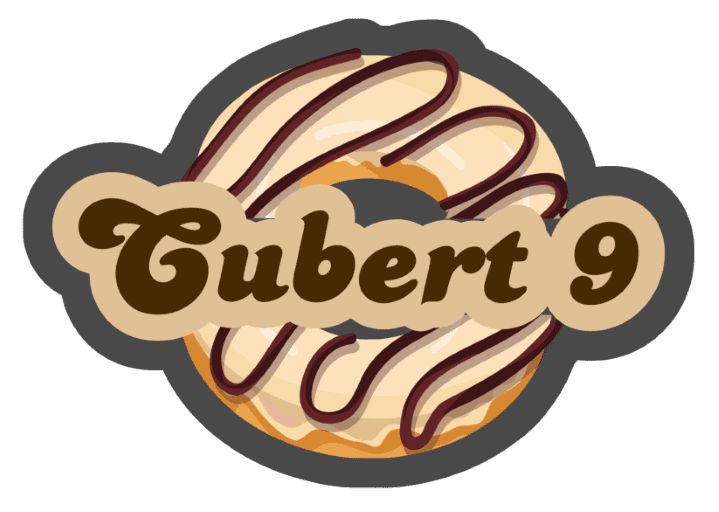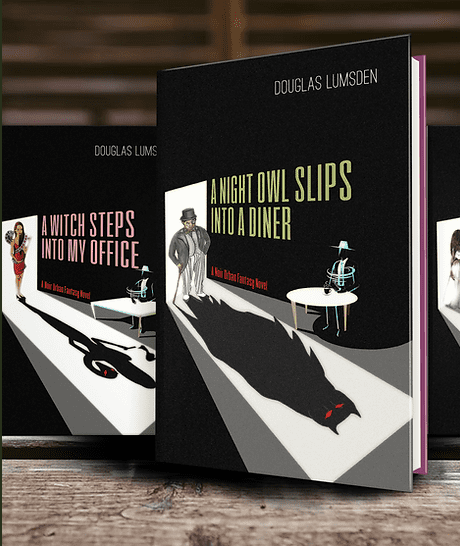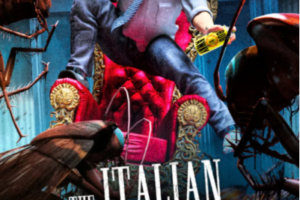Writer of Trolls, Spinner of yarns
Dr. Douglas Lumsden is the author of the Alexander Southerland, P.I. series of Urban Fantasy novels. Dr. Lumsden is a retired professor and brings a unique perspective to his world and characters.
You can purchase books by Dr. Lumsden on Amazon Here and read more about his works on his website here.
First, a bit about Dr. Lumsden
Your Amazon bio tells us that you spent a lot of your career as a history professor. Can you give us a bit of color on that?
I received a doctorate in Medieval European History at the University of California Santa Barbara (Go Gauchos!) in 1995. The history department was nice enough to let me teach some classes there for a few years while I was looking for a tenure-track job. Eventually, I was hired by a small liberal arts college in Kansas. I enjoyed teaching there, but I’m a California boy, and Kansas wasn’t the place I wanted to be. Also, I decided that I would be happier teaching at a college-prep high school than continuing my career as a college professor.
I sent applications to every prep school on the West Coast and was lucky enough to land a job at a private all-girls school in Monterey, where I taught for the next fifteen years until I retired in 2018. That was a dream job. The students in that school were bright and motivated, and having the privilege of teaching them was everything I could ask for. They were so helpful to me. On my first day in a classroom of high-school freshman girls, I had no idea how to talk to them. I didn’t know their language.
I told them that I hadn’t talked to a fourteen-year-old girl since I was a fifteen-year-old boy, and that they would have to teach me how to do it. I told them that if I used a word they didn’t know, they had to stop me in my tracks and tell me. Then I would either explain the word or find a different word to use. They took me on as a special project, and by the time I was halfway through the first year I was able to connect with them. I give them all the credit. I mean, they could have made it really rough for me.
My sister taught at a public school in an economically depressed region. The first thing she had to do every day was confiscate the knives her students brought with them to class. Believe me, I knew that my job was nothing like hers. I was basically stealing my money (but I’m not giving it back).
Do you have a favorite subject matter of history to cover? I noticed you previously published a non-fiction work covering Medieval topics.
My specialty was medieval church history, and I wrote a book called And Then the End Will Come: Early Latin Christian Interpretations of the Opening of the Seven Seals. It was based on my dissertation. I’m guessing twelve people have read it, including my dissertation advisor and my wife. It was a fun book to write, but probably not that fun for most people to read. For some reason, medieval Christian exegesis isn’t as popular as, say, young adult vampire romance fantasy.
I still love medieval European history, and I’m fascinated by the history of most of the world’s regions. But my main interest isn’t so much in regional history, but in types of history. I’m especially intrigued by intellectual history, a fancy name for the history of ideas. Philosophical ideas, religious ideas, social ideas, political ideas…. All history is really the history of thought. All of the significant acts of history are the byproducts of ideas. I have a special fascination with the history of apocalyptic ideas: thoughts about the end of history. We are currently living in the Golden Age of endtime speculation and movements. Throughout history, every generation has believed to some degree that it was the culmination of history, but that idea has been especially intense in the modern world. Whether it’s going to be by an act of divine will or through humanity’s own folly, the idea that the end is near has been a dominant one throughout my lifetime. It speaks to our own conceit: the idea that we are so special, it’s all going to end with us. Hey, maybe we’ll finally be right this time, but it’s hardly a new idea.
You are a pretty vocal supporter of indie authors on social media. Was there an indie author that influenced you prior to your own jump into the world of publishing urban fantasy?
No, I was never aware of whether a book I liked was traditionally published or independently published. But I wrote my first novel when I was 67 years old, and the last thing I wanted to do was start a years-long process of searching for an agent, waiting for a publisher… Let’s just say that at my age self-publishing was my most practical option. And anyway, when I wrote my first book–A Troll Walks into a Bar–I expected that maybe twenty people would read it, and that’s only because my wife comes from a large family. I wrote it because it seemed like it would be a fun way to spend some time now that I was retired. I was right–writing that book was a blast! If no one had read it, it still would have been a great experience.
But then Assaph Mehr, an indie author with a series of books and short stories about a private investigator in a fantasy version of the Roman Republic, read my book and gave it a great review. I read his books and liked them a lot! We connected on Instagram, and he taught me a lot about independent publishing. He’s been incredibly supportive, not only of me but of a lot of indie authors. Because of Assaph, some other people started reading my book, and things took off from there. I’m deeply appreciative of what Assaph has done for me, and I’ve tried to follow his example by supporting other indie writers whose works I enjoy. Through Twitter, I’ve connected with quite a few talented indie writers, and it’s an extremely supportive group, not to mention a fun bunch of people.
You’re old enough to have seen several generations of sci-fi, fantasy and everything else in publishing. Do you have a favorite era?
Ha! Old enough to have seen several generations??? How old do you think I am?!? And don’t you dare rephrase that question, you cheeky little whelp!
Just kidding. I’ll be 70 in June, and, even though I still feel as young as I ever have–and even though I’m as good looking as ever!–I have to admit that it’s a little harder for me to do certain things, like, you know, kneeling down and standing up again, than it used to be. I still run about twenty miles a week, and I’m in pretty good shape for an old geezer. Now, back in MY day….
Eh…. What was the question again? Oh yeah. I’ve read a lot of great books through the years, but I’d have to say that I’ve read more high-quality books in the past three or so years than I’ve ever read in my life. The outbreak of independent publishing options and the explosion of self-published works has changed the game. We have never before seen the sheer volume of creative and well-written books as we have available to us today. An innovative writer no longer has to hope that an established publishing house will take a chance on something offbeat or dangerously different.
It wasn’t that long ago that I would spend all day in a Barnes & Noble scanning book jackets and hoping to find something that stood out from the rest. Now I’ve got an out-of-control ‘To Be Read’ list that I will never be able to fully consume. I read 50 books last year, and all but a handful of them were 5-star reads for me. We’ve never seen anything like this. I hope it lasts.
I’m not sure if you have children, grandchildren etc… but I’m very curious about how your family, especially younger members, react to your writing. You don’t pull many punches, so how has that went over?
I’ve never had any children of my own, and that was through my own choice. As much as I enjoyed teaching young people, I never wanted to take the responsibility for actually raising a child. My parents are both still alive, and they were a bit blindsided by the profanity and subject matter in my books. My Dad, who will be 92 in a couple of months, enjoys my books. My Mom, who will be 90 soon, is proud of the fact that I’m an author, and she enjoys telling everyone that I write books, but she also tells them not to read them. She read 50 pages of my first book and got too embarrassed by the naughty words and too sickened by the graphic violence to go any farther. She is the first to tell me that I shouldn’t hold back.
Funny thing, though. I actually regard my books as fairly tame. I’d classify them as dark fantasy, but they certainly aren’t grimdark (whatever that is). I get a real kick out of people who tell me the language in my books isn’t suitable for anyone under 18. They’ve obviously never heard high school girls talking to each other when they don’t know the teacher is within earshot.
Let’s talk a bit about Alex and his world
I dove into A Troll Walks into a Bar (book 1 of your series) and I’ve enjoyed the series greatly. Can you tell us a bit about how your decision to write an urban fantasy noir mash up?
I’d always felt that I might write a book someday, but I’m a horrible procrastinator, so I didn’t actually get around to doing it until I’d been retired for a year. I had a few ideas kicking around, but nothing solid. So I sat down in front of a blank screen on my computer with the intention of writing ten “first lines.” I figured I would choose the one that grabbed me the most and go from there. I mean, I hadn’t even decided on a genre! So the first line I wrote turned out to be a rather long one-sentence description of a troll in a pin-striped suit standing in the doorway of a bar. I decided I needed to follow the long sentence with a shorter one to balance out the rhythm. Then I followed that with a paragraph that introduced a private investigator. The next thing I knew, I’d written the first chapter of a noir urban fantasy featuring a hardboiled private investigator. I never did get around to writing the other nine first lines. I’ve loved film noir and the works of Dashiell Hammett and Raymond Chandler for as long as I can remember, so I guess that noir was an easy route for me to go. Most of my reading has been divided between fantasy and crime novels, so mashing them up made perfect sense to me. So I guess what I’m saying is that I didn’t make a deliberate choice to write an urban fantasy noir mashup; I just followed the path of least resistance.
When we first meet Alex, he’s in a bar and we learn that he also has some ability with air elementals. Alex uses this ability in a very different way that I think most readers anticipate from there on. How did you come up with this unique, somewhat reserved, use of what could be a vastly overpowered ability?
Here is where I DID make a deliberate choice. I wanted Alex to have a minor supernatural or magical ability that would be useful to him, but not powerful enough to turn him into a superhero. I wanted Alex to be tough, but relatable and human. I like the idea of elementals, and I thought that small, sentient, nearly invisible blobs of air would be a neat way for a P.I. to gather information. So I came up with Smokey, who has proven to be a popular character. Later, I decided that it would be interesting if Alex could summon a more formidable body of wind, and I came up with Badass, who has also turned out to be a favorite among readers. But Badass is actually beyond Alex’s normal abilities as an elementalist. A weapon that big had to come to Alex from someone with more power. That’s a story that will be developed further in my next book.
The story goes from 0 to 100 in the blink of an eye. The storyline hasn’t slowed down since. How have you maintained that momentum?
It’s funny that you say that. I’ve been trying for a deliberate pace, reminiscent of Raymond Chandler. At the same time, I realize that readers like things to keep moving. My favorite chapters are the ones where Alex sits in the dark and ponders the things going on in his life, but my wife, Rita, constantly reminds me to go easy on all the introspection and move on to the next scene. So you can give her all the credit for keeping me on track.
In book 1 and 2, you showed us nothing is off-limits and nobody is safe. Throughout book 3, I was constantly expecting the worst for various characters. Have there been characters you were going to blow away and changed your mind or did in and wish you hadn’t?
I’ve been trying to kill Alex himself for four books now. I’ll get him yet!
Actually, I’ve made a conscious effort NOT to kill off certain characters, because killing them is a cheap way to generate an artificial emotional response. I’d rather keep them living under constant threat in an oppressive universe. But it doesn’t always work that way, and sometimes the story requires someone to die. I’m almost always surprised by it. In Troll, I spent a number of pages developing a character that I really liked. I imagined all kinds of possibilities for this character and was looking forward to the fun I’d have writing scenes in which this character would interact with Alex. I’d established what I thought was a great relationship between the two of them, and I liked the banter between them. But I was writing a murder mystery, and I reached a point in the story where someone needed to die. So I wound up killing this character off. It broke my heart, but that’s where the story took me.
It could happen at any time. I’d have no qualms bumping off any character I’ve introduced so far. In fact… Uhhh, never mind. I didn’t say anything.
In book 2, we get some clarification on the origins of the dragon lord and find out we’re dealing with Central and South American lore. Am I the only one that had to be hit over the head with it to recognize this?
No, I was as shocked as you were. I wrote Troll to be a one-off, and I used the standard critters of traditional fantasy. I wanted something happening in the background at a high level that didn’t touch Alex directly. Then several readers expressed an interest in the glimpses of the wider world in Troll, and I realized if I was going to turn the book into a series I would have to further develop the backstory. At that point, I started thinking that I needed to explore beyond the traditional European fantasy elements.
I’d developed in interest in the pre-Columbian culture of Central and South America while teaching World History, and I began to do further research into the rich body of mythology and folklore of the Western Hemisphere. That included Native North American culture, too, which I really started to get into with Book Three of the series. I mean, why use dwarves and werewolves when you can use Nirumbees and the Huay Chivo, instead? American folklore before the European invasion turns out to be really cool!
Have your readers begun demanding more of any particular character? I was really glad to see Lubank and Gracie become more featured in book 4. I’m guessing others have their opinions as well.
I had one person tell me that if I killed off Smokey, she was walkin’!
I love all my characters, and everyone seems to have their own favorites. I have to go where the story takes me, and I was dismayed that Gracie had such a small role in Book Three. So I made an extra effort to feature her more in Book Four. I’ve been meaning to do something with Ten Inch from the first book, but the stories simply haven’t taken me in his direction. He’ll definitely be in Book Five, though. I think that the relationship between Alex and Ten Inch is one of the best things I’ve done.
Your approach to were’s is very unique. I’m not sure I’ve seen this take before. How did you land on it?
A little at a time. I love the idea of shapeshifters, but I’ve never been a big fan of werewolves. I especially didn’t want to write about werewolves in an urban setting. I mean, how many wolves do you see wondering the streets of San Francisco and Los Angeles? I asked myself what kind of shapeshifter would be appropriate in a noir city, and the first thing that came to my mind was a were-rat. Plenty of rats in the city, right? Then I had to think about the dynamics of being a were-rat. How do you explain a grown man turning into a tiny rat and back again? Where does all that mass disappear to? Where does it come back from? So I decided that a man who shapeshifted into a rat had to shapeshift into a whole lot of rats with a collective consciousness. Then I thought about how it would affect a kid who discovers at puberty that they are radically different than their friends. And then there’s the were-crows and the were-snakes. Lately I’ve been thinking about whether were-creatures are primarily human or creature. Is Crawford the Were-rat a human who transforms into rats, or a mischief of rats that transform into a human? I’ve spent a lot of time thinking about Crawford, and what kind of person he would be in the setting for my stories. He’s a big part of Book Four, and I spun him off into my novella that’s coming out in early April. I think I’m going to have to do more with him in the future. He’s become my favorite character apart from Alex himself.
How long do you see the series going?
I’m not a fan of open-ended series. Eventually they either become repetitive or they jump the shark. If I can end the Southerland series with Book Five, I will, though I suspect I’ll need a Book Six. But I might continue with the Southerland universe. Like I said earlier, I might do more with Crawford. I don’t know. It’s all up in the air right now. I’ve also been thinking about writing an epic fantasy set in ancient Jericho before the walls came a-tumblin’ down. Or I might do a cyberpunk novel. Or even a non-fantasy neo-noir. I’ve got a lot of ideas swirling around in the old noggin. I’ll go where the mood takes me.
I want to ask if we’ll meet dragons, see the world change at a macro level and all those things. Is there anything you care to hint at without giving away your plans too much?
I’ll tell you a secret that’s not really a secret: I don’t do a lot of detailed planning. I’m a pantser all the way. The last time I made a formal outline of anything was when I was writing my doctoral dissertation. I don’t know where the Southerland series is going, but I’m not inclined to give it an apocalyptic resolution. On the other hand, if that’s where the story takes me, then I’ll have little choice but to follow. I’m as anxious to see where it’s all headed as anyone else.
Thanks to Dr. Lumsden again for participating. We can’t wait for the Demon’s Dagger coming on April 8, 2022.
C9



